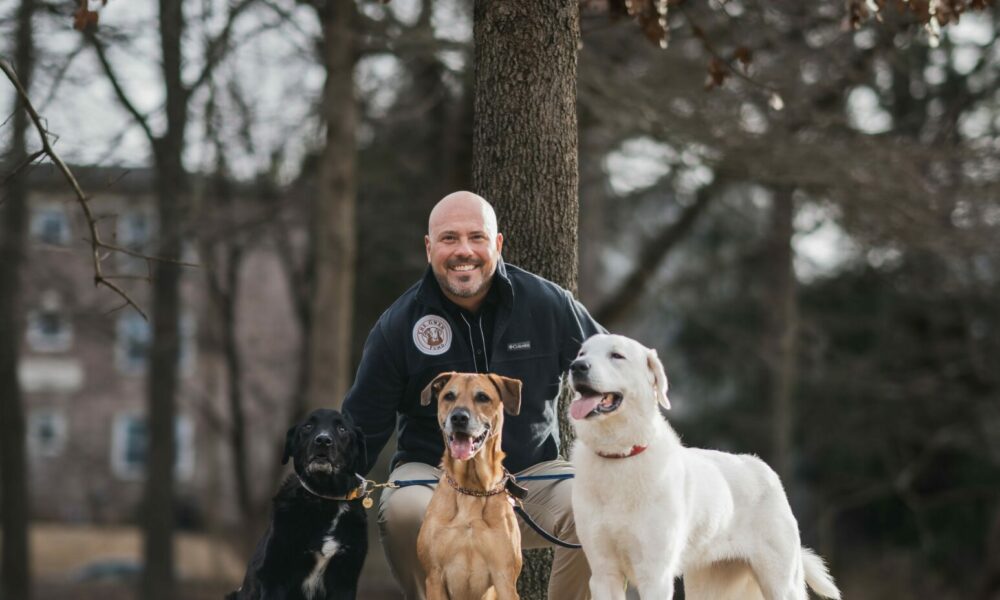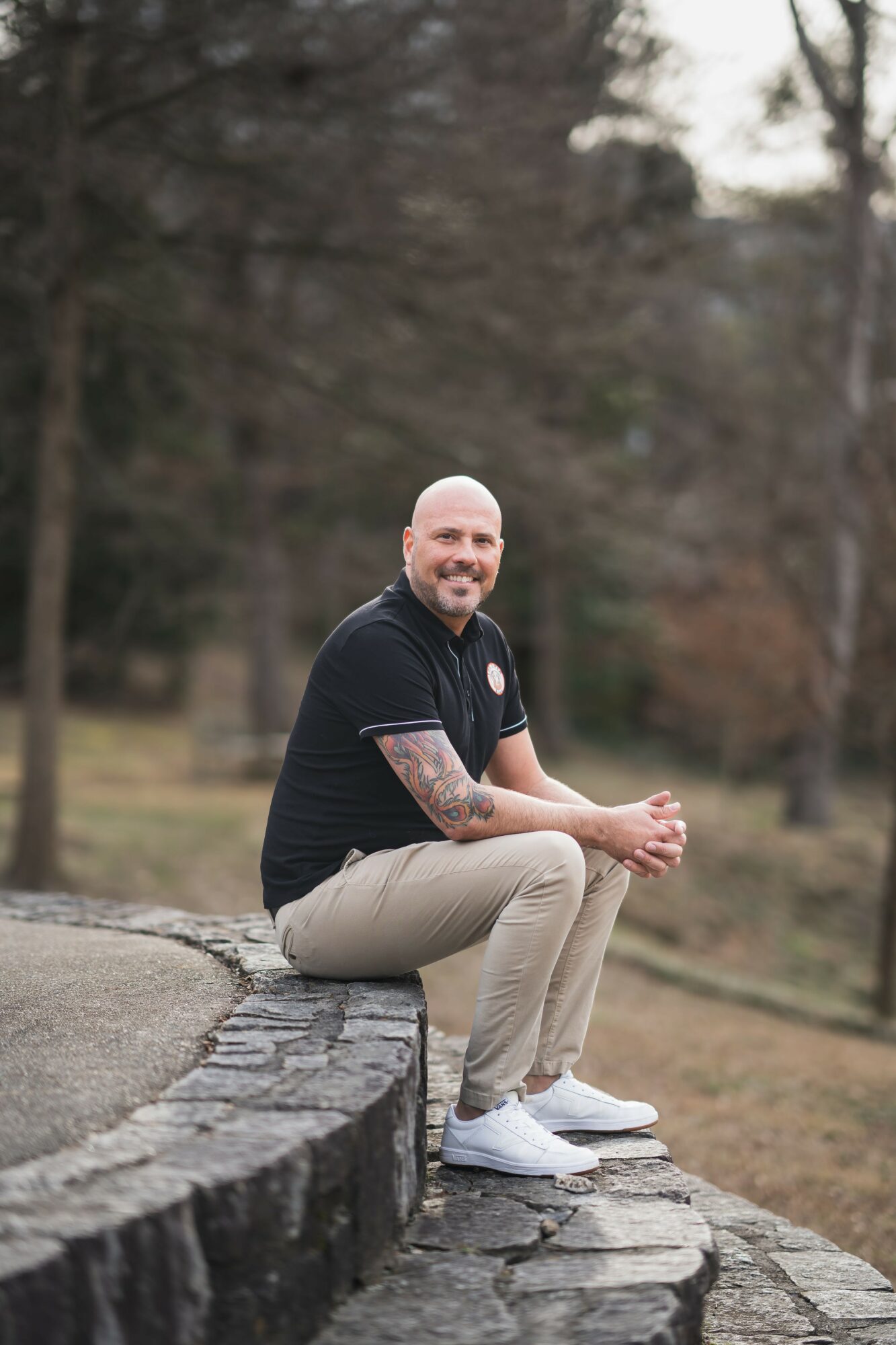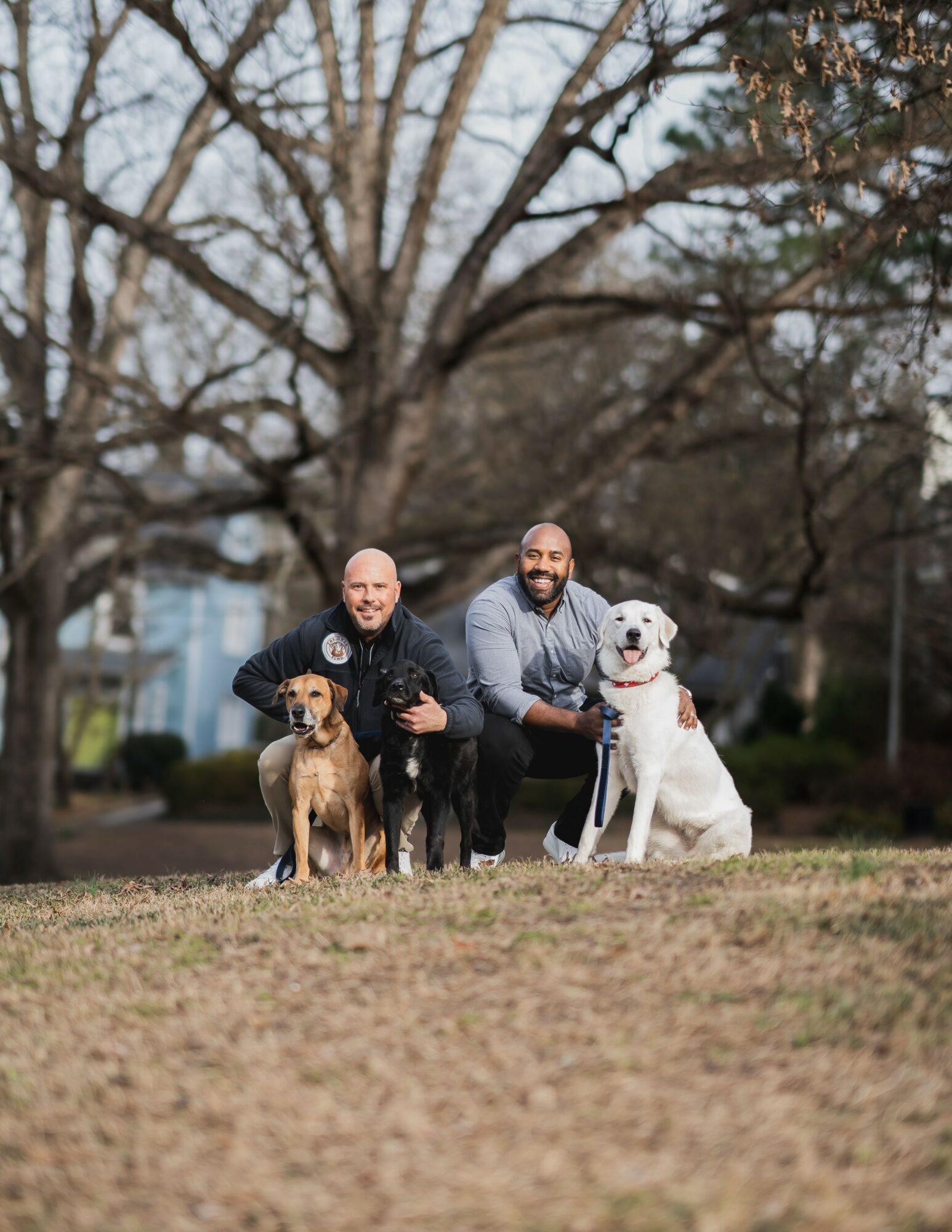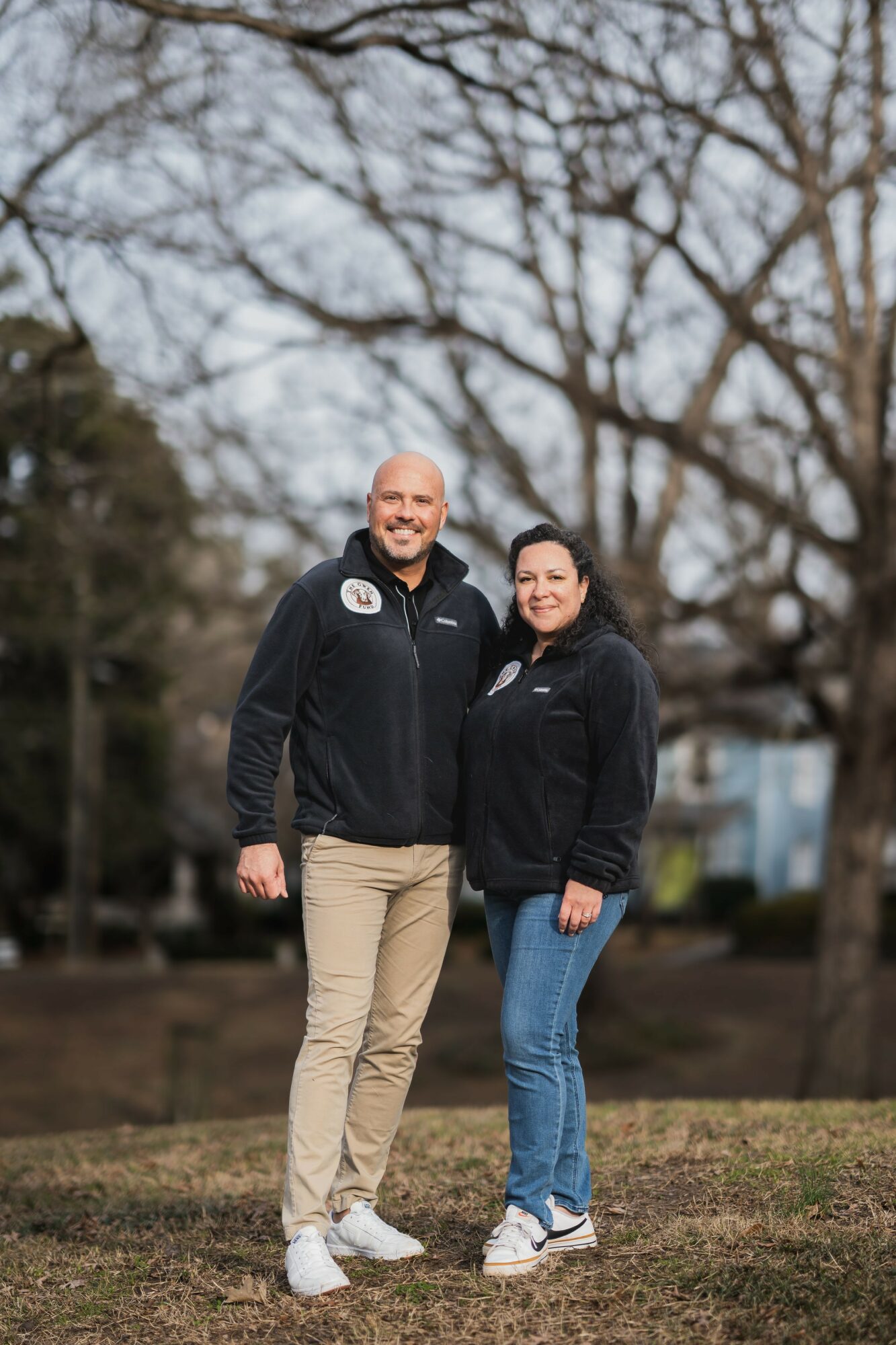

Today we’d like to introduce you to Chris Olinger.
Hi Chris, so excited to have you with us today. What can you tell us about your story?
I’ve been a part of animal welfare for much of my life, volunteering at shelters, local rescue organizations, and working at a clinic in my hometown. I’ve seen the worst that people can do to animals, but I’ve also seen how kind humans can be and how close the connection can become between pets and their people. I rescued Gwen, a chocolate lab, when she was only six weeks old. Gwen was with me for 15 years. She was the one constant being in my life, my family, my best friend. Gwen was with me through all of the ups and downs including the struggles of being a broke college student to a young adult in a new career, to the highs of meeting my now husband. As the years passed and her health faded It became increasingly evident that one day, I would have to say goodbye. That somehow I was going to have to go on without her. I found it unbearable to imagine, but I had the help of my partner and amazing veterinary care providers to guide me. They helped me to think clearly through making decisions about her care. In the final 6-8 weeks of Gwen’s life, there were several veterinary appointments, including diagnostics to pinpoint exactly what was happening to her. The thing about dogs is that they can’t tell you what’s wrong – in fact they are quite good about pretending that everything’s fine. She would eat, but very little. She was lethargic, but she’s also a 15-year-old dog – is that normal? We didn’t know. We spent thousands trying to find out what was happening to her.
Finally, on one Thursday afternoon, our doctor suggested we do a full blood panel. It’s another $700, but this would give us the answer. We decided to go for it – and this is when we discovered Gwen’s cancer. Hemangiosarcoma. A tumor in her abdomen had ruptured, she was bleeding internally. Gwen would have about 24 hours left. The doctor stabilized her so that we could bring her home. We had a wonderful evening with her and threw her a small gathering with some of our closest friends who adored her. My dearest friend passed away peacefully the morning of September 26th, 2020.
Naturally, I was devastated to have lost her, but also filled with gratitude that we discovered her illness, provided hospice care, and were able to say goodbye. You see, had we not had the funds to cover the veterinary appointments and additional testing – we never would have known what was happening to her.
Without the funds to cover her emergency and hospice care, Gwen would have likely been rushed to an ER later that night, bleeding internally from her ruptured tumor that we didn’t know about. I never would have been able to say goodbye.
I never would have been able to forgive myself for letting her go through that. I know from my previous animal welfare experiences that people love their pets – they are family. I know that even the best pet guardians fall on hard times, that great pet parents may not always have an abundance of resources to cover the rising cost of care. We started The Gwen Fund because we wanted to increase access to emergency, palliative, and hospice care. Our organization provides people with a safe space to ask for help.
We are a grassroots nonprofit organizing relying entirely on individual donors and volunteers.
Would you say it’s been a smooth road, and if not what are some of the biggest challenges you’ve faced along the way?
Every nonprofit struggles with funding, but I’ve found this to be particularly challenging for us.
Our goal is to increase access to emergency, palliative, and hospice care by providing financial aid. These types of care tend to be very expensive. We are talking about broken legs that can easily generate a $8,000 hospital bill or palliative care that may require expensive monthly prescriptions. Our bills are high and we have little to recover the funds once they are spent. For example, organizations that do rescue and adoption still have lots of costs to cover such as wellness exams, microchipping, sometimes even heartworm treatments, but they can also charge an adoption fee which offsets (some) of the healthcare cost.
Rescue’s work incredibly hard to rehome pets. But the challenge that we face is what happens later after an animal is placed. One of the leading reasons for pets being surrendered to shelters/rescues is the cost of care – with better funding our program could actually assist with the overcrowding of shelters and overwhelmed rescues.
We also struggle to find volunteers – The truth is that our work here isn’t always fun. We are working with guardians who are upset by an event that has put their pets well-being at risk. There are many frantic 4 am phone calls from an emergency room. Partner this with people who are experiencing financial hardships or are already living on a limited income being faced with large ER expenses – it can be a very stressful situation.
We aren’t looking to put any volunteers into a role that requires them to be on call, but we do need volunteers to help us manage our social media accounts, websites and blog. We also need event planners for fundraisers. The challenge of filling this role has yet again been that many people are more interested in fostering or working more hands on with animals.
Appreciate you sharing that. What else should we know about what you do?
I’ve spent most of my life volunteering within animal welfare organizations, but my professional life is very different.
I’ve worked in the eyecare industry for 21 years as a Licensed optician. I am American Board of Opticianry Certified and hold two undergraduate degrees (Business Administration / Healthcare Administration) from Purdue University. I practiced as a dispensing optician until 2015 when I accepted a position with a wholesale optical lab company. Since then I have served as an account executive, consultant, and independent wholesaler. In 2020 I founded The Gwen Fund, as well as a wholesale eyewear company known as Three Dog Eyewear, LLC which serves as a wholesaler to optometrists in the independent channel.
What are your plans for the future?
We have big plans for The Gwen Fund. Our primary goal at The Gwen Fund is to increase access to critical care and hospice care.
Death is a reality that we all face – we want to normalize these conversations and to help people prepare for the end of their pet’s life. Making a plan will make the transition so much more peaceful and allow families to grieve. Death preparedness is another tool that would also prevent premature euthanasia or surrendering to shelters – many people don’t include their pets in their will!
We are interested in finding a space that would allow us to offer rescue and adoption, as well as the ability to offer more healthcare educational resources around preventive care (free spay & neuter clinics, free wellness exams, etc.)
Pricing:
- Critical Care: Emergency surgery, hospitalizations, oxygen therapy, ultrasounds and x-rays. $80-$5000
- Palliative care: Quality of life assessment, In-home euthanasia, Veterinary visits. $100-$450
- Aftercare: Transportation, memorial services, cremation. $150-$550
Contact Info:
- Website: www.thegwenfund.org
- Instagram: https://www.instagram.com/thegwenfund/
- Facebook: https://www.facebook.com/thegwenfund
- Linkedin: https://www.linkedin.com/company/thegwenfund/


 Image Credits
Image Credits
MAG Visuals Tony Guerrero @Tony.m.ig













